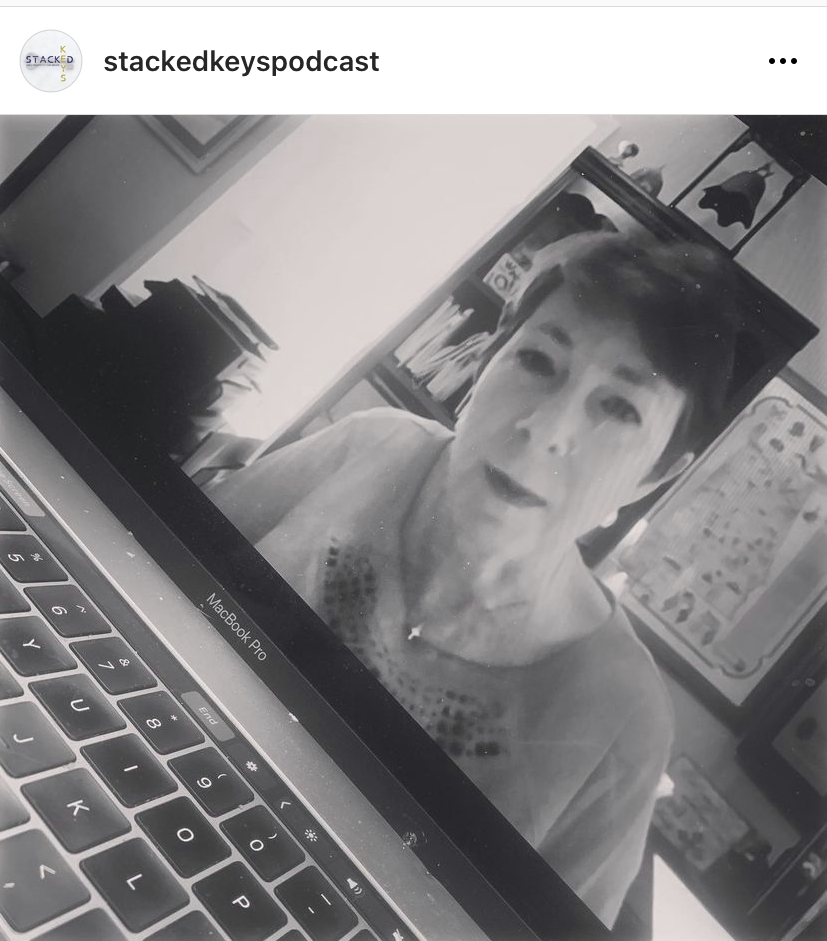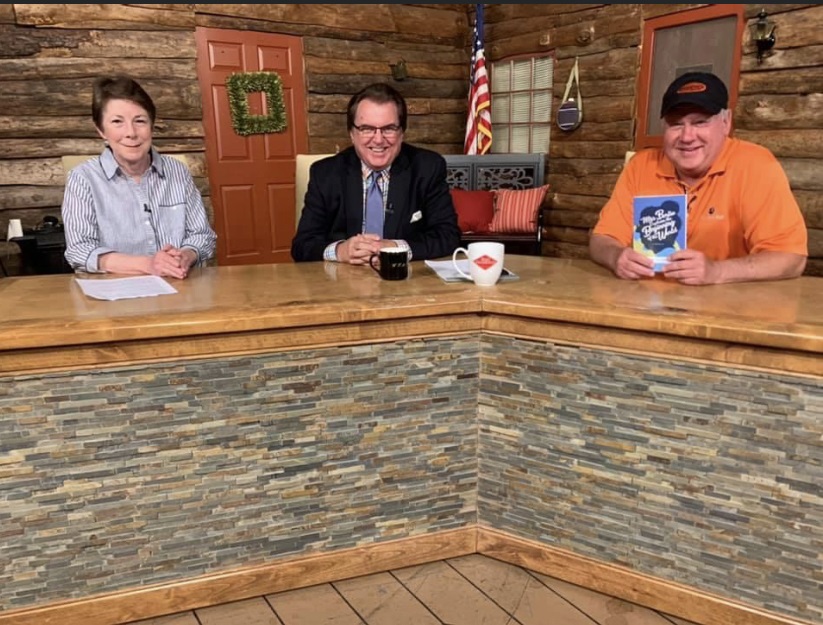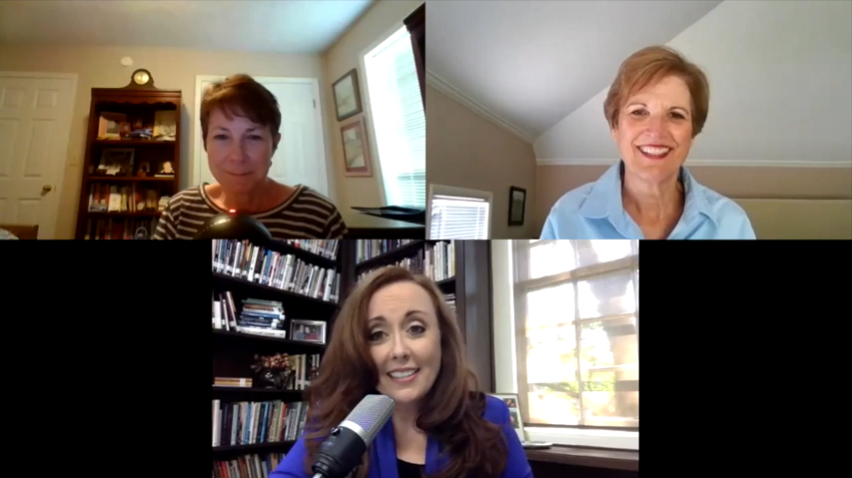I was very happy to see this review posted by TAB Media for George Stringfellow Joins the Revolution … Lamberth’s latest novella leaves readers inspired to seek a brighter future | The Alabama Baptist
Category: Creative Purpose
Launch Day!
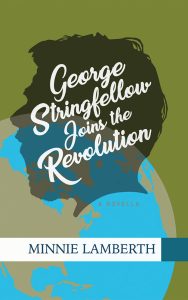
I like the symmetry of certain dates. My Aunt Minnie passed away on October 5, 1995. She was 88 and had been ill. She was not a casualty of Hurricane Opal, but that fierce storm was coming through Central Alabama at that same time.
Also around that time, I was beginning the story that would become Life with Strings Attached. It would take nine years to go from those first few sentences to publication—if you’re counting between hurricanes. Because during that last bit of proofreading for the novel, when I needed to ship the manuscript back to the publisher, Hurricane Ivan was headed to town. Which meant I was the only one out looking for Liquid Paper as part of my storm provisions.
Fast forward another fifteen years or so. I was envisioning a new project that was a bunch of pieces that needed a connecting thread. Those pieces ultimately became Miss Bertie. As I understand, Aunt Minnie had been a second grade teacher at an FSU lab school for their education department. She was not the actual model for Miss Bertie, but she did influence the development of her back story, and she was something of a muse when I asked myself, “What would it be like to talk to her today?”
Also, just FYI, it felt right to add a cat to the previous story—I did, and I named her Opal.
So today I am pleased to introduce you to a friend of Miss Bertie’s—George Stringfellow. His story is live now in ebook form, or you can order a paperback version.
Doing the Work You’ve Chosen
I was fortunate in my career in that I always knew what I wanted to do—I wanted to write. That was my calling and my skillset. How I wanted to follow that call and how I could apply this skillset toward a successful career were other matters entirely.
The first thing I wanted to do, job wise, was to become an advertising copywriter, and I was very excited when I landed my first professional job at an advertising agency. In that role, I wrote clever pieces with lots of turns of phrases for newspaper and magazine ads, billboards, brochures, radio spots, and tv spots. I enjoyed the creative environment I was in.
My second job was serving as a public information officer for a state government agency, which had a large staff led by an executive director who reported to a commission made up of political appointees. Part of the work was writing press releases, speech drafts, annual reports, meeting recaps and the like. This was very dry stuff, and I often felt misplaced even though the regular salary was nice.
My third job was a transition. I worked part-time at a college, my alma mater, handling public relations projects while I tried to figure out how to start a writing business. I wanted to apply skills and do work I enjoyed, but I thought it would be safer to have part of the work locked in.
Actually, there was too much work to do for my part-time role, so I had to make a decision. I picked the vague vision I had for my future, and I stepped out on my own as a full-time freelance writer.
I’ve always had a little trouble with my elevator pitch—how I explain what I do. Over time, the term copywriter seemed to apply less and less to how I was actually serving others. It turns out, I don’t write ads very often. I don’t often write radio spots and TV commercials or billboards on any typical day. I usually write content—in whatever form needed. And I proofread or edit someone else’s content.
This kind of writing focuses on a business interest, a marketing program, a communication objective. There’s always a purpose for my pieces—and usually a desired result. And it’s never negative, unless I’m writing for someone who’s against something.
I love this kind of work. Because it’s a good fit for me. Plus, there are people under pressure to get their writing projects done, and helping them do so is my superpower.
Here are some things I’ve learned:
First, It starts with skill sets. I knew what I could bring to the table.
Two, I knew, generally, the kind of people I would serve—people in the advertising, public relations, marketing, and communications fields.
Three, I had a network of contacts within these fields that I operated within.
Four, I needed a structure for my day—a way to organize my work habits.
Five, I needed the tools to get the work done. Which has basically been a laptop and various software and peripherals as needed.
And, six, I needed the realization that this is the work I have chosen. I’m pretty sure I would have given up long ago—in light of all the highs and lows of entrepreneurial life—if I had not loved what I’ve chosen.
So how about you? What do you want to do? What are some ways you can execute this idea? And what is it that you love to do so much that you will keep going?
Writing about the Community
It’s possible to build a full-time freelance writing career serving people in your own community. In my work as a local writer, I’ve been able to network within a professional community of public relations practitioners and other communicators who need regular marketing content. As a result, the work-for-hire projects I’ve gotten as a writer have largely come from people I know or people who know people I know. For example, among the projects I juggle for various marketing clients, I recently talked with local leaders to write these pieces for the Montgomery Business Journal:
The Whole World is a Small Town
I had a chance to visit with Amy Stackhouse, host of Stacked Keys Podcast, to discuss writing … and a lot more. She came up with the episode title — “The Whole World Is a Small Town” — from one of my answers to her questions. I really do believe that’s true. You just have to find your town! Take a listen at this link:
A Visit on the Front Porch
It was so much fun to talk with Kenny Dean and Terry Mitchell during my visit to The Front Porch, a local TV program based in my hometown of Alexander City, Alabama. I was fortunate to be scheduled as the last guest for an early morning program. You can find me 1 1/2 hours into the video from the live stream:
https://www.facebook.com/TheFrontPorchonWAXC/videos/134345945350948/
Recent Projects
It was a pleasure to talk to the people bringing new businesses to interesting and historic neighborhoods in Montgomery. #MyMGM – Cottage Hill’s Redevelopment Restores and Revives – PublicLayout-blog – Montgomery Area Chamber of Commerce – AL, AL (montgomerychamber.com)
I also enjoy writing about community organizations. This piece for the Montgomery Business Journal highlights how a non-profit agency helps individuals with developmental disabilities train for, find and thrive in a job. GiveBack: Win-Win at Work – PublicLayout-blog – Montgomery Area Chamber of Commerce – AL, AL (montgomerychamber.com)
Writing and Publishing Tips
This was the first time I’d ever been interviewed for a podcast, and I enjoyed talking with the folks about TAB Media about my work as a writer for marketing and communications projects, as well as my novella, Miss Bertie Explains the Beginning of the World. Our conversation was through Zoom, which they recorded and also uploaded to their Youtube channel. The conversation is at this link …
5 R’s for Navigating Change
If I picked one word that is the key to my life as a creative solopreneur, it is this one:
Resilience.
I wish someone had tipped me off to this word when I began my freelance writing career, but I had to learn it through experience.
I launched my journey as an independent copywriter 20 years ago. In 2001, I onboarded my best-paying copywriting client. Hooray! In 2003, that client went away. Oh, dear.
It’s been like that ever since.
There are cycles to business needs and business relationships. I can be there to meet the opportunity when it’s there, but let it go if it goes.
Year ago, I signed a temporary client. We discussed working together for a couple of months on a weekly editing project, at least until she could replace her assistant. Thirteen months later, she replaced her assistant.
I said goodbye.
When that assistant left, I came on board for another couple of months for regular editing work until she could replace her assistant.
Four months later I said goodbye.
This happened once more. A temporary assignment. This time it lasted two years before I said goodbye.
Some things go away, some things come back. Resilience enables a creative entrepreneur to let go as it goes but welcome it back the next time around. Or respond to the changed environment and regroup.
R is a great letter for words that guide: Resilience. Respond. Regroup.
And, of course, this one: Relationship.
Build that, and you may get them again on the Rebound.
3 Questions for Alarming Times
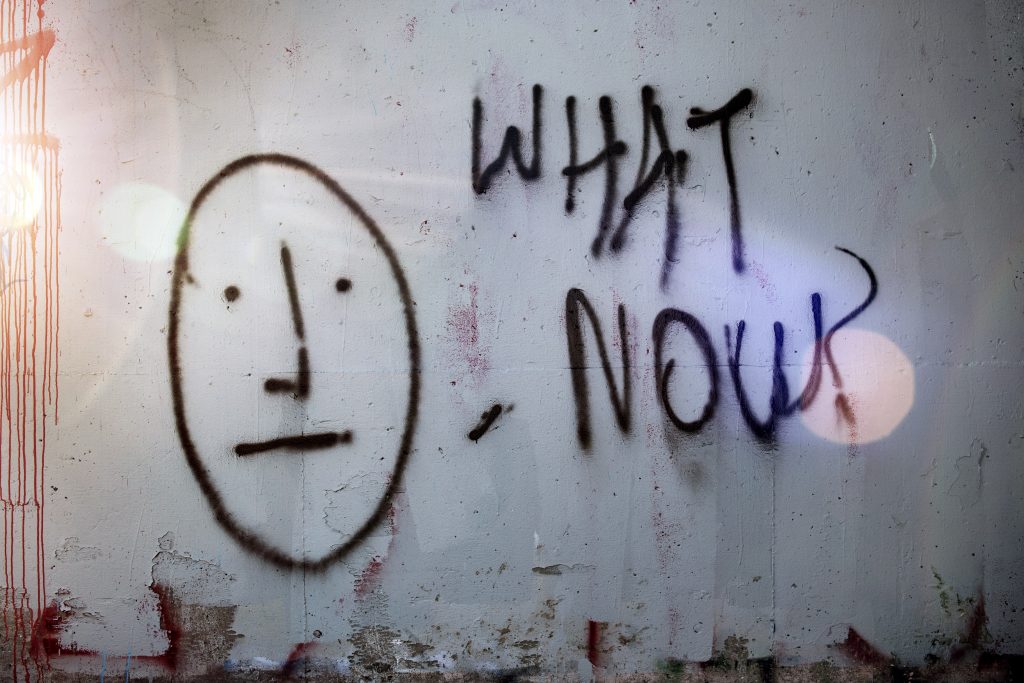
Last week, I had my first in-person meeting since the pandemic began. I’m a writer in Montgomery, Alabama, and I headed downtown for article interview. Everything went fine until I returned home to discover that my house alarm was blaring.
The problem was compounded by the fact that I could not turn it off. The keypad didn’t work. This was a full system breakdown, and I didn’t know how to pull the plug on the alarming noise filling my home.
Clearly, the writing assignment would have to wait.
I called my security company for help. The over-the-phone recommendations didn’t help. The rep pulled a tech off another job and sent him to my place to deactivate the alarm.
So my cat and I were there in the house for about 30 minutes while the alarm blared. These moments were stressful. I couldn’t think straight. My cat was confused and concerned. All I could do was wait.
When the tech arrived, he was polite, helpful, and efficient. I was relieved that he was there. He detached the wires, but the system was shot. I would need a new one. He returned first thing Monday morning – again, polite, helpful and efficient – and installed my new system.
Naturally, I can make an analogy to being a creative entrepreneur in this era of pandemic.
Sometimes the situation is like standing in the house with the alarm blaring, and I’m looking at the cat and saying “I’m sorry, sweetie, this isn’t easy for either of us.”
In this mode of panic, it’s hard to think straight. It’s hard to be creative. Later, when the house was quiet again, I had an idea: I could have gone to the electrical panel and shut off the power to the circuit that wired the alarm. I didn’t think of it at the time.
That’s what the first weeks of quarantine were like … “I can’t get my hair cut? I can’t go out to lunch? Church is closed for two weeks? I have to cook?”
All of which boiled down to this question: “How will I survive?”
Sometimes the pandemic is like an eternal window of waiting for a service technician. (“We have you on the schedule, and he’ll be there sometime between March and August.” Or: “I wanted to let you know he’s been slightly delayed so it might be January. Sit tight, and we’ll keep you posted.”)
What do you do while waiting? Well, you look around. You ask, “What needs tending to? How can I make use of my time.”
My question moved from “How will I survive?” to “How will I thrive?”
The latter is a better question because it brings more energy. It comes at the problem with more optimism and allows for creative thinking. I did make some choices: publish a novella, launch a podcast, increase my content production and paint my interior walls – all of which have provided a feeling of thriving even as I wait.
Then there’s the third question.
Sometimes the pandemic is like, “I’m so glad that technician was able to help me.” He was polite, he wore a mask, he gave me plenty of space. And he made the house quiet again. Even in this strange time, he served at a higher level. He did one thing, in fact, that was quite extraordinary. He noticed that the plate for my front door knob had been installed backwards, which meant that I had to turn the knob to close the door.
I hadn’t thought about it. It never occurred to me that this plate, installed last year, had been placed backwards. He offered to switch it around, and I said, “Sure.”
That act represents how I moved to my third question. I’ve gotten through “How will I survive?” I have asked, “How will I thrive?” But the one going forward?
“How can I help others?”
With creative thinking and the energy that comes from a new question, I’m looking forward to discovering lots of new answers.
How about you? What questions are you asking today? Do they allow for creative thinking and renewed enthusiasm? If not, how can you change those questions?
